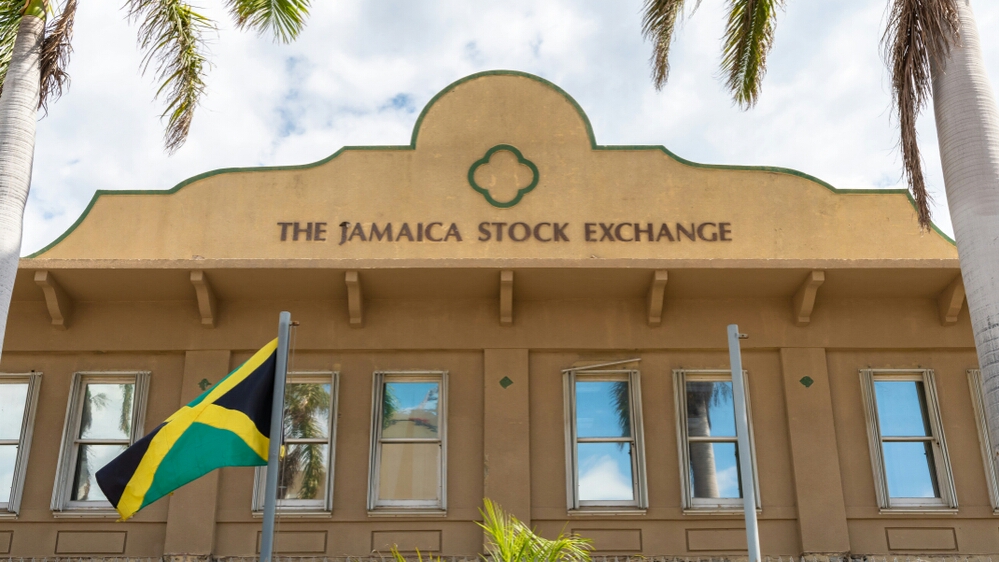
It’s not a stampede, but a growing number of traditional stock exchanges have begun to offer cryptocurrency-related products, in a move that’s been viewed in some quarters as key to introducing cryptocurrency to conventional equities investors. But will the involvement of stock exchanges help the cause of cryptocurrency, or is this merely an opportunistic endeavour by profit-oriented bourses fearful of missing out on crypto revenue?
Also read: Bibox Exchange to Launch Leveraged BCH Perpetual Contracts
Breaking New Ground
On April 3, the Jamaica Stock Exchange (JSE) announced that it will start a limited pilot to trade bitcoin and ethereum within the next few weeks. The move by the JSE is the latest in a series of announcements that aim to open the doors to cryptocurrency investment. In the U.S., the Nasdaq has recently listed BTC and ETH indices, while Switzerland’s main stock exchange, SIX, listed an XRP-based exchange-traded product.
According to Marlene Street Forrest, managing director of the JSE, the exchange’s project, implemented in partnership with Canadian financial technology company Blockstation, is aimed at creating a “safe, efficient and transparent regulatory framework” for the trading of digital assets. But it is also clear that the potential for profit might have played a part. “[BTC and ETH trading] is an unprecedented opportunity for the JSE to diversify its product offerings and attract new listings and inbound investments,” said Street Forrest.

Mati Greenspan, senior market analyst at Etoro, the global multi-asset investment platform, told news.Bitcoin.com that the integration of cryptocurrency by traditional stock exchanges is mainly motivated by FOMO – the fear of missing out.
“Institutions have realised that crypto is here to stay and have been looking for ways to seize the opportunities presented by crypto assets,” Greenspan opined. “The Jamaica Stock Exchange news is yet another sign that adoption happens gradually in front of your eyes, until you pause for a bit, look around, and realize that crypto is front and centre of the investment landscape,” he added.
Win-Win Situation
Unlike banks, which are experts at lobbying against the competition, traditional stock exchanges aren’t worried about cryptocurrency startups moving in on their turf. On the contrary, quite a number of them appear to have interpreted this as a potential win-win situation. For example, the Nasdaq stock exchange, the world’s second largest stock market by capitalization, started offering real-time information on two new indices tied to the cryptocurrency market – bitcoin core and ethereum – on Feb 25.
The Nasdaq’s move has been seen as key to introducing cryptocurrency to conventional stock market investors on Wall Street and elsewhere, while simultaneously driving mainstream adoption. The stock exchange has swam against the tide in being drawn to crypto assets, starting with publishing analytical reports on bitcoin and partnering with Vaneck to launch BTC futures trading in a falling market in 2018.
Whereas most investors still favor equities over virtual currencies, the arrival of stock exchanges – with their many years of experience – to the crypto markets will in future change all this says Marvin H. Coleby, a securities lawyer and CEO of Raise, a Bahamas-registered digital securities platform. “People trust them [stock markets], institutions trust them and governments have developed safe regulatory frameworks for them to operate,” Coleby told news.Bitcoin.com.

He continued: “They are by far one of the most important examples of human efforts to distribute economic wealth via fractional financial instruments to anyone around the world. Their buy in of distributed ledger-based assets is not only a huge stamp of approval for crypto and other similar digital assets, but it means that those stock markets will make it easier for people to access assets around the world.” Cryptocurrencies and security tokens are digital assets that will significantly extend the impact of fractional financial products that exist both on and off stock market exchanges, he added.
Legitimizing Crypto
Coleby admits the proliferation of opportunistic tendencies exhibited by many entities within the crypto space, but dismisses stock markets as ranking among them. He stated: “Exchanges and stock markets are some of the best placed institutions to understand fractional and divisible financial products that are characteristics of many cryptocurrencies. This seems like a genuine attempt to enter and legitimize the market.”
The Caribbean is perhaps one of the most innovative regions in regard to cryptocurrency, pushing out regulation that is friendly to the development and growth of the technology. The Jamaica Stock Exchange became one of the earliest stock markets to announce any interaction with crypto, long before 2019. Moreover, the rest of the Caribbean is working to develop new regulatory frameworks and technologies, such as in the Bahamas, Bermuda, Jamaica and Barbados.

“I hope that centralized stock markets like the JSE take more seriously how the world will be moving away from centralized exchanges, and the impact that smart contracts will have on the traditional roles of custody and settlement served by centralized exchanges,” cautioned Coleby, the Raise CEO.
What do you think about conventional stock markets integrating cryptocurrency-related products on their platforms? Let us know in the comments section below.
Images courtesy of Shutterstock.
Express yourself freely at Bitcoin.com’s user forums. We don’t censor on political grounds. Check forum.Bitcoin.com
The post How Traditional Stock Markets Can Help Mainstream Cryptocurrency appeared first on Bitcoin News.

Bitcoin.com is author of this content, TheBitcoinNews.com is is not responsible for the content of external sites.
Our Social Networks: Facebook Instagram Pinterest Reddit Telegram Twitter Youtube










